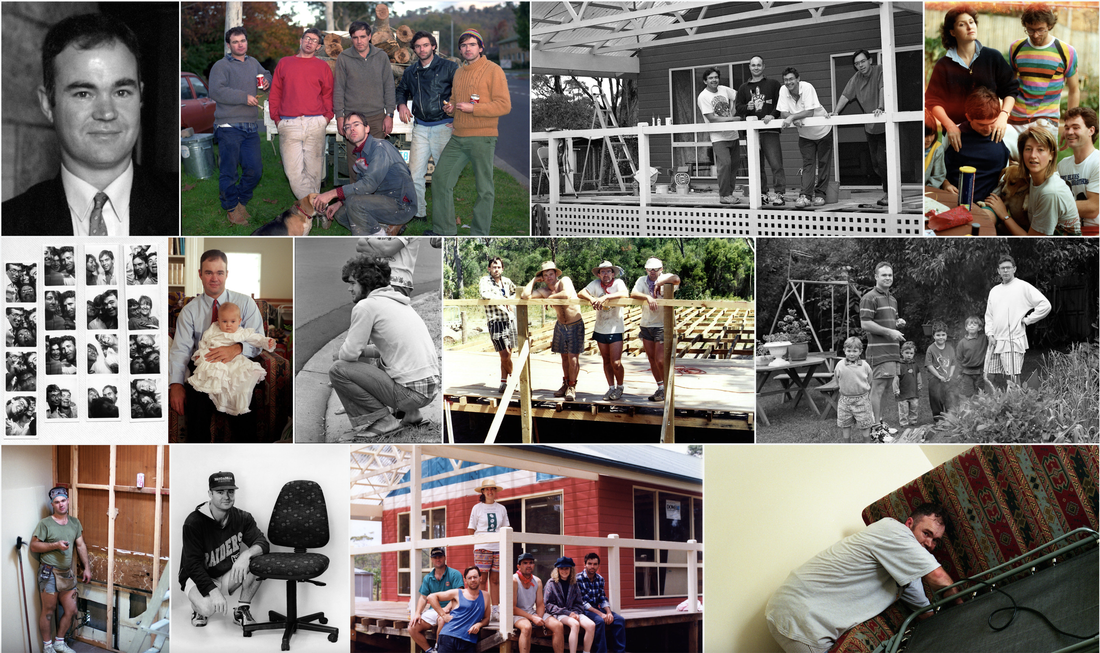| As a video biographer and personal historian, I am a grateful fan of Facebook. It helps us connect and stay up with family and friends, provides a free repository for our photos and videos, and offers an increasing array of tools and ideas for creating and preserving our personal history, including something important just announced. Nowhere is Facebook more helpful than in tragic situations of death. When my good friend Peter died too young his family set up a Facebook "group" where we all shared stories, posted video, and uploaded precious images - all shimmering with fond memories (these are some of my photos here). But that's not all... |
Memorializing Facebook Pages
For some time now Facebook has given family the option of "memorializing" a person's page after they have passed, including their photos and videos. Of course, you could do nothing and just leave the page as is. But:
When an account is memorialized, we set privacy so that only confirmed friends can see the profile or locate it in search. We... remove sensitive information such as contact information and status updates. Memorializing an account prevents anyone from logging into it in the future, while still enabling friends and family to leave posts on the profile Wall in remembrance.
There was a problem though - what if a family member or important friend wanted to log in to fix something, accept a friend request, post a video, or make some necessary changes such as removing off-color or even bullying posts? Who owns a Facebook page anyway? The issue of ownership and control has become a hot topic: At least five states (Oklahoma, Idaho, Rhode Island, Indiana and Connecticut) have passed legislation regulating one's digital presence after death, including email. New Hampshire has been considering the same thing and there are calls for federal legislation.
For some time now Facebook has given family the option of "memorializing" a person's page after they have passed, including their photos and videos. Of course, you could do nothing and just leave the page as is. But:
When an account is memorialized, we set privacy so that only confirmed friends can see the profile or locate it in search. We... remove sensitive information such as contact information and status updates. Memorializing an account prevents anyone from logging into it in the future, while still enabling friends and family to leave posts on the profile Wall in remembrance.
There was a problem though - what if a family member or important friend wanted to log in to fix something, accept a friend request, post a video, or make some necessary changes such as removing off-color or even bullying posts? Who owns a Facebook page anyway? The issue of ownership and control has become a hot topic: At least five states (Oklahoma, Idaho, Rhode Island, Indiana and Connecticut) have passed legislation regulating one's digital presence after death, including email. New Hampshire has been considering the same thing and there are calls for federal legislation.
Your Facebook Executor
Coming to terms with this groundswell, Facebook allows users to designate a "legacy contact". Once Facebook is notified that the person has passed away, they will memorialize the account and the legacy contact will be able to:
There is no true salve for the loss of a loved one. But social media is helping us to enjoy each other while we live, and to remember those who made our lives more liveable when they are gone. It's a kind of magic, social media immortality.
Coming to terms with this groundswell, Facebook allows users to designate a "legacy contact". Once Facebook is notified that the person has passed away, they will memorialize the account and the legacy contact will be able to:
- Write a post to display at the top of the memorialized Timeline (for example, to announce a memorial service or share a special message);
- Respond to new friend requests from family members and friends who were not yet connected on Facebook; and
- Update the profile picture and cover photo.
There is no true salve for the loss of a loved one. But social media is helping us to enjoy each other while we live, and to remember those who made our lives more liveable when they are gone. It's a kind of magic, social media immortality.


 RSS Feed
RSS Feed
